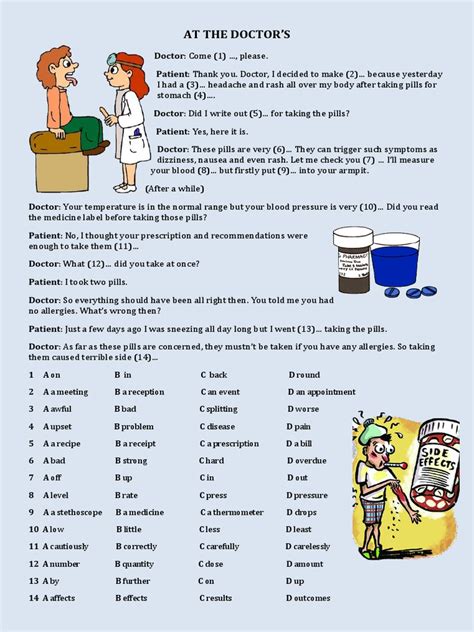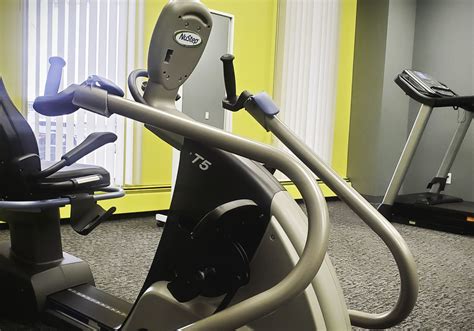Intro
Discover the top 10 high-paying jobs in the health field, offering lucrative salaries and growth opportunities. From physicians and pharmacists to healthcare administrators and biomedical engineers, explore in-demand careers that combine rewarding work with financial stability. Learn about the education, skills, and experience required to succeed in these high-paying healthcare professions.
The healthcare industry is one of the fastest-growing sectors globally, with a wide range of high-paying job opportunities. From medical professionals to healthcare administrators, there are numerous lucrative careers in the health field that can provide financial stability and personal fulfillment. In this article, we will explore 10 high-paying jobs in the health field, discussing their responsibilities, required education and training, and average salary ranges.

1. Physician Assistant (PA)
Physician assistants are medical professionals who work under the supervision of licensed physicians to provide patient care. They are responsible for conducting physical exams, diagnosing illnesses, and developing treatment plans.
- Required education and training: Master's degree in physician assistant studies
- Average salary range: $108,610 - $140,000 per year
Responsibilities of a Physician Assistant
- Conducting physical exams and taking medical histories
- Diagnosing illnesses and developing treatment plans
- Prescribing medications and ordering diagnostic tests
- Educating patients about healthy habits and disease prevention

2. Pharmacist
Pharmacists are healthcare professionals who dispense medications and provide patient counseling on proper medication use. They also monitor patient health and adjust medication regimens as needed.
- Required education and training: Doctor of pharmacy (PharmD) degree
- Average salary range: $126,120 - $160,000 per year
Responsibilities of a Pharmacist
- Dispensing medications and monitoring patient health
- Providing patient counseling on proper medication use
- Adjusting medication regimens as needed
- Collaborating with physicians to develop treatment plans

3. Dentist
Dentists are healthcare professionals who diagnose and treat dental problems, such as tooth decay and gum disease. They also provide preventive care, including routine cleanings and oral exams.
- Required education and training: Doctor of dental surgery (DDS) or doctor of dental medicine (DMD) degree
- Average salary range: $156,240 - $200,000 per year
Responsibilities of a Dentist
- Diagnosing and treating dental problems
- Providing preventive care, including routine cleanings and oral exams
- Creating treatment plans and recommending dental restorations
- Educating patients about oral health and disease prevention

4. Healthcare Administrator
Healthcare administrators are responsible for managing healthcare facilities, including hospitals, clinics, and nursing homes. They oversee budgets, staffing, and patient care.
- Required education and training: Master's degree in healthcare administration
- Average salary range: $119,840 - $160,000 per year
Responsibilities of a Healthcare Administrator
- Managing budgets and staffing
- Overseeing patient care and quality improvement initiatives
- Developing and implementing policies and procedures
- Collaborating with healthcare professionals to improve patient outcomes

5. Occupational Therapist
Occupational therapists help patients develop the skills they need to perform daily activities, such as bathing, dressing, and cooking. They work with patients who have physical or mental disabilities.
- Required education and training: Master's degree in occupational therapy
- Average salary range: $85,950 - $120,000 per year
Responsibilities of an Occupational Therapist
- Assessing patient needs and developing treatment plans
- Helping patients develop daily living skills
- Providing adaptive equipment and technology training
- Collaborating with healthcare professionals to improve patient outcomes

6. Physical Therapist
Physical therapists help patients recover from injuries or illnesses that affect their mobility and strength. They develop treatment plans that include exercises, stretches, and other interventions.
- Required education and training: Doctor of physical therapy (DPT) degree
- Average salary range: $91,440 - $130,000 per year
Responsibilities of a Physical Therapist
- Assessing patient needs and developing treatment plans
- Helping patients recover from injuries or illnesses
- Providing exercises, stretches, and other interventions
- Collaborating with healthcare professionals to improve patient outcomes

7. Nurse Practitioner (NP)
Nurse practitioners are advanced practice registered nurses who provide patient care, including diagnosing and treating illnesses. They work in a variety of settings, including hospitals, clinics, and private practices.
- Required education and training: Master's degree in nursing
- Average salary range: $111,840 - $150,000 per year
Responsibilities of a Nurse Practitioner
- Diagnosing and treating illnesses
- Providing patient education and counseling
- Ordering diagnostic tests and interpreting results
- Collaborating with healthcare professionals to improve patient outcomes

8. Medical Research Scientist
Medical research scientists conduct studies and experiments to develop new treatments and medications. They work in a variety of settings, including universities, hospitals, and pharmaceutical companies.
- Required education and training: Doctoral degree in a life science or medical field
- Average salary range: $84,810 - $120,000 per year
Responsibilities of a Medical Research Scientist
- Conducting studies and experiments to develop new treatments and medications
- Analyzing data and interpreting results
- Collaborating with healthcare professionals to improve patient outcomes
- Developing and implementing research protocols

9. Healthcare IT Specialist
Healthcare IT specialists design and implement technology systems to manage patient data and improve healthcare outcomes. They work in a variety of settings, including hospitals, clinics, and healthcare organizations.
- Required education and training: Bachelor's degree in computer science or a related field
- Average salary range: $83,610 - $120,000 per year
Responsibilities of a Healthcare IT Specialist
- Designing and implementing technology systems
- Managing patient data and ensuring data security
- Collaborating with healthcare professionals to improve patient outcomes
- Troubleshooting technical issues

10. Biomedical Engineer
Biomedical engineers design and develop medical devices, equipment, and software. They work in a variety of settings, including hospitals, clinics, and medical device companies.
- Required education and training: Bachelor's degree in biomedical engineering or a related field
- Average salary range: $94,280 - $140,000 per year
Responsibilities of a Biomedical Engineer
- Designing and developing medical devices, equipment, and software
- Testing and evaluating medical devices
- Collaborating with healthcare professionals to improve patient outcomes
- Developing and implementing safety protocols

These high-paying jobs in the health field offer a range of opportunities for individuals who are passionate about healthcare and want to make a difference in patients' lives. Whether you're interested in patient care, research, or healthcare administration, there's a career path that's right for you.
We hope this article has provided you with valuable insights into the world of high-paying jobs in the health field. If you have any questions or comments, please feel free to share them below.
What is the highest-paying job in the health field?
+The highest-paying job in the health field is typically a physician or surgeon, with average salary ranges of $208,000 - $621,000 per year.
What are the most in-demand jobs in the health field?
+The most in-demand jobs in the health field include nurse practitioners, physician assistants, and healthcare administrators, as well as medical researchers and biomedical engineers.
What are the educational requirements for high-paying jobs in the health field?
+The educational requirements for high-paying jobs in the health field vary, but many require a bachelor's degree, master's degree, or doctoral degree in a relevant field, such as medicine, nursing, or biomedical engineering.
